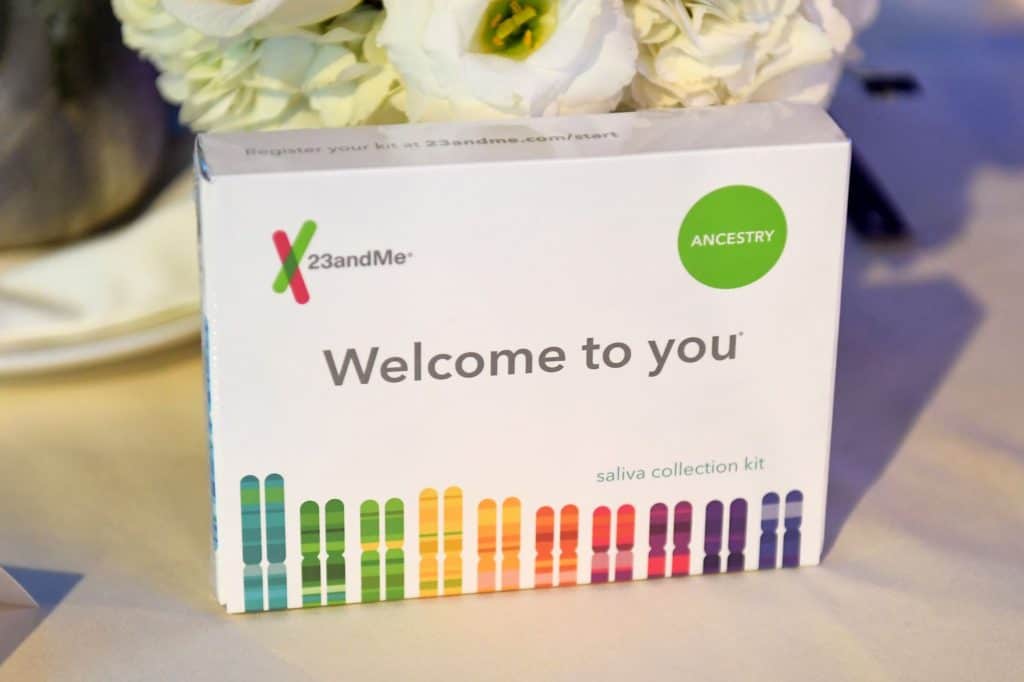By Dan Murphy

Many of us have explored our ancestors through the millions of census record and public documents available, and also through the help of websites like Ancestry.com. In addition to the study of our genealogy, another popular way to find out your where your ancestors came from is through genetic companies that now advertise all over television and the web. These companies, based on a simple swab of saliva, can tell you what countries or regions of the world your DNA originates from.
A recent interview on the Michael Smerconish show on XM-Sirius Radio with genetic genealogist CeCe Moore provided a new twist to the DNA-Genealogy craze. Many serious and decades-old crimes are now being solved through the public sharing of DNA records by private citizens looking into their family tree or looking for their biological relatives.
Moore, who works on the popular PBS show “Finding Your Roots” with Henry Louis Gates Jr., and is founder of thednadetectives.com, which has 100,000 Facebook followers, now works for Parabon NanoLabs, a company that provides DNA analysis services for law enforcement organizations.
Moore explained that genealogy, the study of tracing your family tree though research and census records, and genetics, the study of our DNA, had been completely separate until 2000. At that time, Family Tree DNA started to use DNA results to help persons find their ancestors.
About 1 million customers of 23andme, DNA.com and other genetic websites, also released their raw data file to a company called Ged Match, which helps people who want to find their biological families by comparing their DNA to the files in their databases.
So if you have used one of the genetic ancestry online companies but have not also used Ged Match, your DNA files are not being used to solve crimes. But here is the wonders of modern medicine and technology that bring a DNA sample on Ged Match to solving decades-old double-homicides.
When John Smith “spit in the tube,” as CeCe Moore puts it, and then also signs up for Ged Match, his DNA and the DNA of 1 million other Ged Match users can be compared to that of unsolved crimes across the country.
The DNA of the unknown person whose blood was found at a murder site is then compared to the million files in the Ged Match database. “We are looking for unknown people that share significant DNA to everyone in the Ged Match database, and based on their family tree, we can reverse engineer that unknown person’s family tree to the DNA of family members and find that the unknown criminal is a second cousin to someone who used Ged Match, and whose great grandparents were the same,” said Moore. “In one (double homicide) case we found parents whose DNA matched an unknown subject, but they only had one son, so it pointed to him and after a police investigation it matched him.”
Moore and the DNA detectives can only provide police with an incredible lead, that they must follow up on and build a case around. In the double-homicide case from the State of Washington from 30 years ago, police followed the subject around until he threw out a used coffee cup, which they used to identify his DNA and arrest him. “Discarded DNA is fair game,” said Moore. And all of this started with a second cousin who provided their DNA online to investigate their genealogy online and build their family tree.
When asked about privacy concerns, Moore said: “It all comes down to you can’t control your relatives. If your relatives want to spit in the tube and mail the DNA to Ged Match, that is their individual choice. And that choice exposes their relatives, there is no law prohibiting the use of genetic data to identify unknown people, or to identify biological parents or perpetrators in a crime. We have been using the same techniques to identify birth parents for 10 years.”
GEDmatch charges customers $10 per month to keep their profiles in the database. The company claims to use the fees to keep their DNA storage units open and stays in business with the help of volunteers. The site also claims that 10,000 adoptees have found their biological parents with their help.
The GEDmatch databases are used to find rapists and sexual assault criminals. GEDmatch records are more sophisticated that the FBI”s codis database and better than typical police DNA testing.
Many people also use DNA testing to examine their health, and the genetic health of their relatives, to uncover possible threat of disease. Moore also added that the science continues to evolve but, “we have to advise people that they might find something life changing.”
In addition to unsolved murders, rape cases and sexual assault cases have also been solved. “No cases are easy, but when they are straightforward, it really falls into place very quickly,” said Moore. “If your second cousin was tested, we can find you.”
Now that the floodgates are open, enjoy your genealogy search and submitting your DNA, realizing not knowing where it might end up. My daughter recently provided a DNA sample to one of the many online companies that advertise on TV. Her results did not completely coincide with my own, extensive research and knowledge of my families background, which includes Czech blood, that was not included in the results for Katie. But that’s ok, we had a good time trying.





